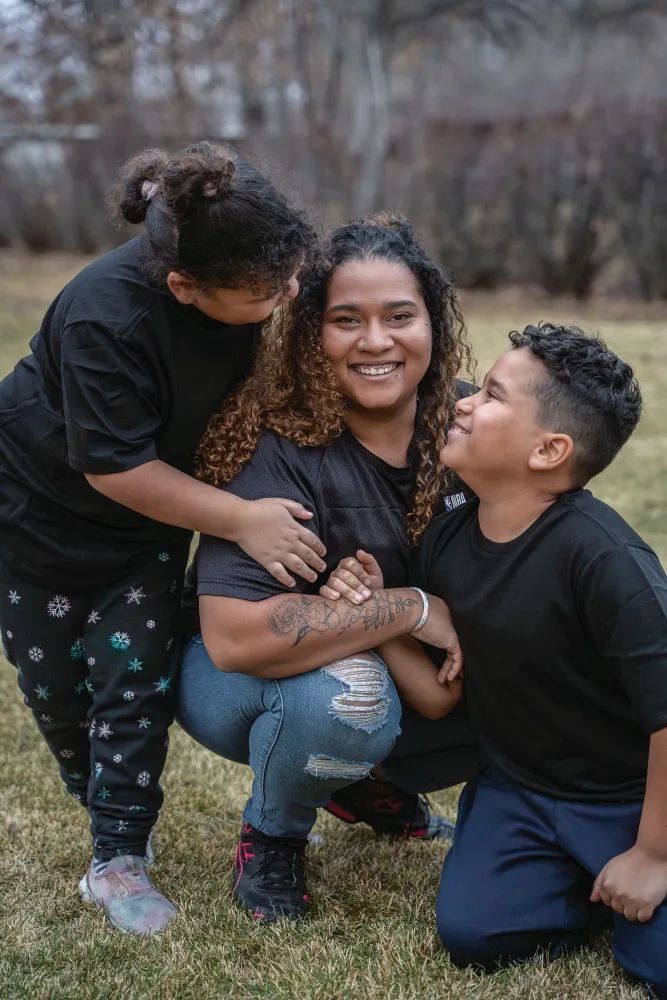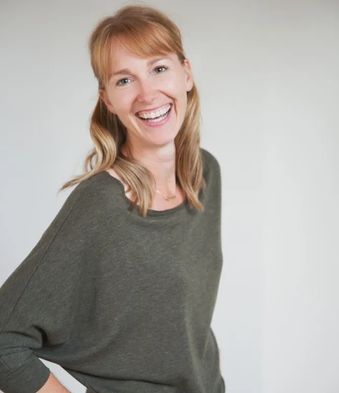
From Victim to Advocate: Janisha's New Beginning
January 2024
by johanna kennedy
If you were to pick a meth addict/trafficking survivor out of a lineup, you probably wouldn’t choose Janisha. Raised in a middle-class family in Billings, the youngest of five kids, she graduated from Senior High. However, her life quickly spiraled when she began experimenting with drugs at age 14. She was raped at 15. “Nobody believed me. It felt like I was unheard, like no one cared, and that bad things happening were just a part of life that I had to deal with and move on.” At 17, she ran away. However, she stayed in school and kept her job. “My goal was to be a functioning addict. Hardly anyone knew what I was really doing.”
At 18, she ran into her brother’s friend at a party. “My brother was in prison, and I really missed him. So, when his friend offered to take care of me, I took him up on it.” Soon, taking care of her meant being his assistant. She started by answering phone calls or messages on apps to schedule visits for his customers. His business was prostitution; his customers were commercial sex customers. “I answered the phones and babysat the girls’ kids when they went on calls.” She did this until she gave birth to her first child at 19.
When Janisha returned to work, her duties changed. She now went on calls. For the next two years, she juggled drugs, calls, and her son. One day, a regular of hers gave her a little extra money. “He knew that most everything I made went to my trafficker, so he told me to keep the extra.” Her trafficker found out and set up her next call. “When I walked into the hotel room, there were four guys there, and I knew.” When he picked her up from the call, he said, “Did you learn your lesson?”
“I felt like I was loved until I did something wrong,” Janisha continued, “If I didn’t want to go on a call, he would say something like, ‘If you don’t do this, I’ll call CPS.’’’ Then, at 21, Janisha gave birth to a baby girl. It wasn’t long before she wanted back in the game. This time, she came under a new trafficker. “One night, my friends went out without me, and an incident happened. The next day, the cops were at my door.” Janisha was told never to trust authority; unfortunately, she found this true. “I went on one call to a hotel where we pulled up next to a police van. I thought we were busted. However, the cop wasn’t there to bust me; he was my customer.”
Yet, when Officer Seth Foster from the Billings Police Department walked into her house the day after the incident, Janisha learned for the first time that not all authority is bad. “He didn’t treat me like garbage or a criminal. He wanted to hear what I had to say. He listened and understood.” After her interview with the police, the FBI got involved.
When FBI Special Agent Brandon Walter met Janisha, he saw a vulnerable young woman. “She was a young single mom with two kids who had previously been in an abusive relationship and trafficked. It’s exactly what a trafficker looks for. Janisha didn’t admit to being trafficked right away but talked of her previous relationship and her friends who were being trafficked.” Her case was a major one involving 20 local victims that SA Walter worked on for over 18 months.
I asked Special Agent Walter how prevalent trafficking is in Billings. He stated, “When we adjust the statistics per capita, we have a significant problem here. Traffickers feel like they are trafficking in Mayberry [a quaint little town]. It’s right under our noses. I often talk to parents who have no idea that their daughter is being trafficked. It isn’t like the movie Taken, where the girls are in physical chains. The victims are psychologically chained to their traffickers, who are very charming. We call them Romeo Pimps because they give the illusion of love and romance. The girls often believe they are their trafficker’s favorite. He may promise that if she only keeps going on calls a little longer, they will have enough money to go away, get a house, and have a family together. That day never comes.”
Janisha began to realize that this day would never come for her, and she was tired. Working with the FBI could be her way out. She became an important witness in the case against her trafficker. Although Janisha began cooperating, SA Walter said: "Disclosure is a process, not an event.” It takes time. Around this time, she became aware that people were reporting her to CPS.
Janisa shared, “One day, I dropped a friend off at CPS for her visitation appointment. I sat in the car while she went upstairs. While I sat there, one of the social workers called me. She told me they knew I was in the parking lot and told me to come upstairs because they needed to talk to me about my kids.” Reluctantly, she went upstairs and met social worker Amy Charbonneau. Amy asked Janisha to take a drug test, which she refused. Amy remembers, “I told her that I was very worried about her and that I thought she was a kick-ass mom and a great person, but that she was in a scary situation and we had significant concerns.”
Janisha remembers Amy well. “She has a way with words. She said, ‘Your kids will go with your mom, and you will be OK.’ I hated her at first, but just by talking with her and listening to her questions, I could tell she had so much hope for me. [Throughout my involvement with CPS] Amy never gave up on me. I had never had anyone care for me that much at that time.”
“So, my kids went to live with my parents, and I waited to get into treatment,” Janisha continued. “I struggled to make the visits with my kids and with drugs. Then, I found an app that would allow Amy to track me. It was great because I couldn’t lie to her about where I was.” Then, the day came to check into treatment. “I was at a laundromat when Amy called and told me it was time to check-in. I told her I wouldn’t make it because I was doing my laundry.”
Amy also remembers this moment. “I saw on the app where she was. When I called her to tell her to go to treatment, and she said she wasn’t going to make it, all I said was okay. I hung up the phone, drove to the laundromat, and told her to get in my truck. I grabbed her laundry out of the machines, threw it in my backseat, and drove her to treatment. She asked me, ‘What if I fail?’ I told her, ‘‘If you fail, you’ll try again, but you’ll be out in 30 days, and you will see your kids sober for the first time ever.’’
About two weeks in, Janisha was still planning how to use again until one of the Victim Advocates visited. She told Janisha that they had finally caught everyone associated with her case, including her trafficker, and that they would all go away for a very long time. “It felt like I was wearing all this armor to protect myself, and when she said that, it all came off. For the first time, I cried in treatment.” Something clicked, and Janisha thought she might make it.
After treatment, Janisha transitioned to a sober living house. While at the house, she became involved with Drug Court. With the people involved in her Drug Court, her social workers at CPS, and the FBI agents, Janisha felt she had true wrap-around care that worked. “I had so many people rooting for me and my kids. I could call them at any time for any reason, and someone would answer and help me.” Janisha graduated from Drug Court and was reunited with her children.

photo by Brittney Higgs
Three years later, Janisha is involved with these agencies in a different capacity. Instead of calling her FBI contact for encouragement, she calls to discuss their next speaking engagement to share her story. Instead of discussing her case with local law enforcement, she’s helping survivors she works with at HER Campaign navigate their own cases. Amy once asked Janisha what she wanted her life to look like in five years. “Everything that Janisha listed has happened; she accomplished everything.” Janisha attributes her success to those who invested in her. “If I didn’t have these people, I know I’d be sold across state lines or dead today.”
Originally printed in the January 2024 issue of Simply Local Magazine
Never miss an issue, check out SLM's digital editions here!





